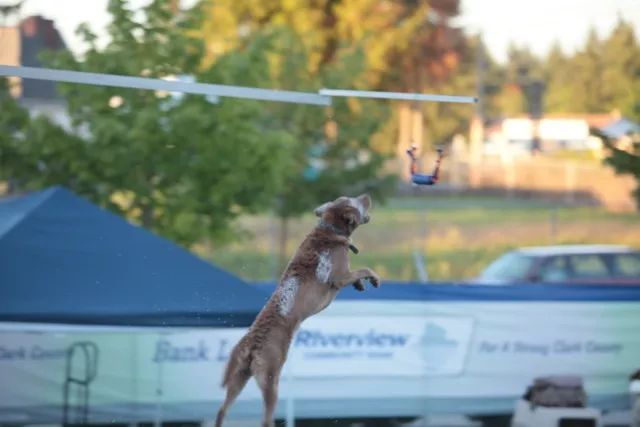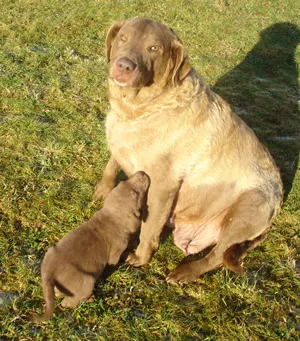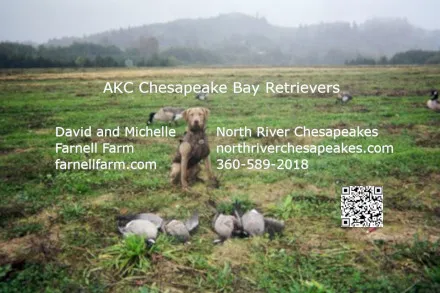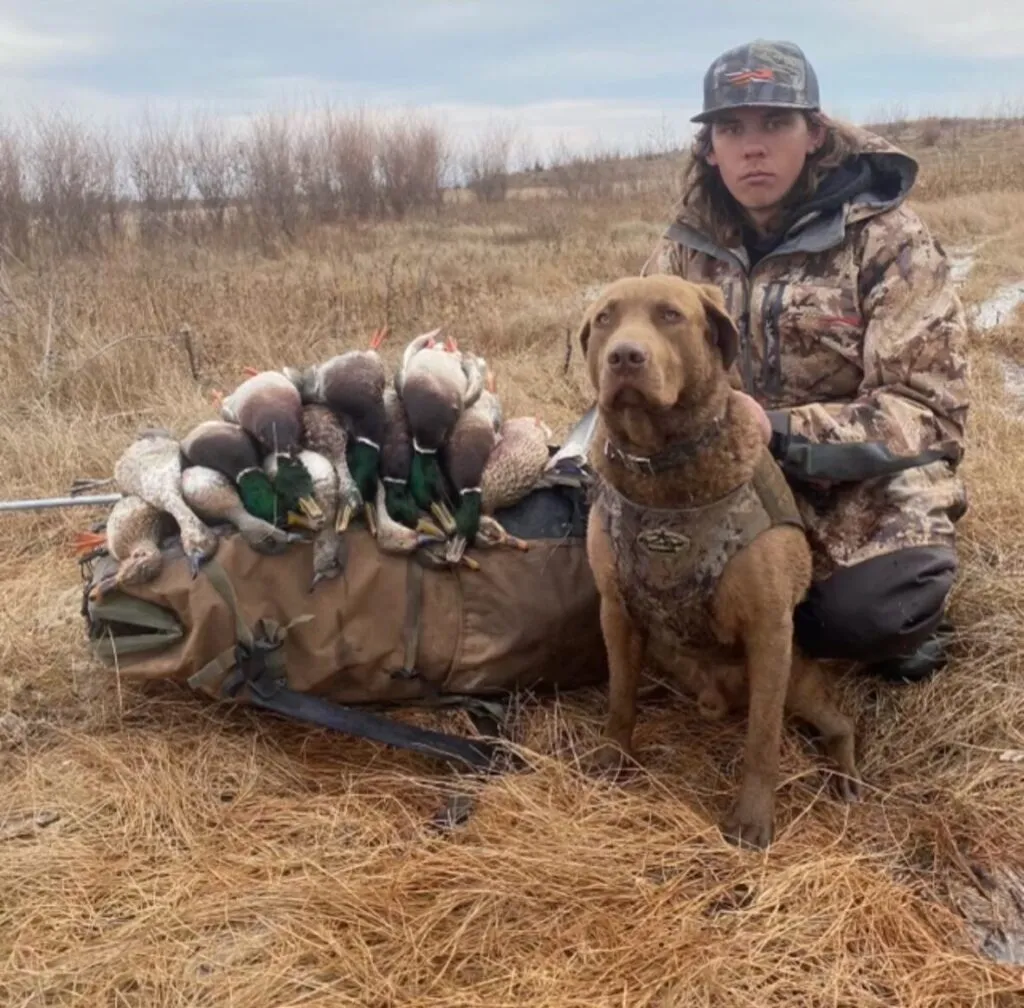Are you looking for a dedicated, intelligent, and versatile canine companion? A Chesapeake Bay Retriever, often affectionately called a “Chessie,” might be your perfect match. Renowned for their exceptional hunting abilities and unwavering loyalty, these dogs are a favorite among enthusiasts. If you’re searching for “Hunting Chesapeake Bay Retriever Puppies For Sale,” this guide will provide you with essential information to make an informed decision and find a healthy, well-prepared puppy.
The journey to finding a hunting Chesapeake Bay Retriever puppy for sale begins with understanding the breed’s heritage, health, and the preparation involved in raising these remarkable animals. At North River Chesapeakes, located in western Washington state, our passion is breeding Chesapeake Bay Retrievers that excel not only as hunters but also as cherished family pets and guardians. Our breeding program, which began in 2005 with North River Splash and Gunner’s Mate of Sekiu, is a continuation of the esteemed Farnell Farm Chesapeakes lineage.
The Rich History and Capabilities of Chesapeake Bay Retrievers
Chesapeake Bay Retrievers have a proud history deeply intertwined with the waterfowl hunting traditions of the Chesapeake Bay region. Bred for their resilience in cold waters and challenging weather conditions, they possess a natural instinct for retrieving. The dogs from North River Chesapeakes have consistently demonstrated their capabilities in various disciplines, including competitive shows, thrilling “Dock Dogs” events, and rigorous hunt tests. Their inherent hunting prowess, combined with their protective nature, makes them outstanding hunters and loyal family companions.
Prioritizing Health and Temperament in Chessie Puppies
The paramount goal at North River Chesapeakes is to produce healthy dogs with excellent dispositions and sound confirmation. We believe that excelling as hunters and family pets should come naturally to a well-bred Chessie. To ensure this, our breeding dogs undergo comprehensive health testing. This includes screening for genetic conditions such as Degenerative Myelopathy (DM), Exercise-Induced Collapse (EIC), and Progressive Retinal Atrophy (PRA). By testing for these, we aim to prevent the manifestation of debilitating traits in our offspring. As these conditions are recessive, offspring are less likely to be affected as long as both parents are not carriers.
 Dock Dog Moxie
Dock Dog Moxie
Rigorous Testing for Optimal Breeding Potential
The foundational dogs within our breeding program undergo thorough evaluations once they reach two years of age. This includes testing of their hips, elbows, and eyes to assess their suitability and potential for our breeding program. Furthermore, dew claws are surgically removed. This crucial step is taken to prevent potential injuries during hunting activities, as the extra digit on the lower leg can easily catch on brush, leading to more severe harm. Before our puppies join their new families, they receive a veterinary check-up, begin their vaccination series, and are dewormed, ensuring they are as healthy as possible when they head home.
Comprehensive Pup Preparation for a Confident Start
From birth to eight weeks of age, our puppies are immersed in a wide array of new experiences and environmental conditions. As they mature daily, they explore our farm, gaining exposure to the realities of the great outdoors. With our ten children and growing number of grandchildren, the puppies are accustomed to plenty of interaction and playful energy from little ones. This upbringing is designed to produce a puppy that is exceptionally well-adjusted and ready for virtually any situation they may encounter.
If you’re interested in receiving automatic email updates on all things related to our exceptional puppies, we encourage you to subscribe to our Pup Blog. You can also Contact Us for additional information regarding our hunting Chesapeake Bay Retriever puppies for sale or future litters.
Please note: While we strive to provide up-to-date information, litters can be reserved quickly. We encourage you to contact us regarding getting on our “Future Litter” list. Once we gather sufficient interest for a future litter, we will plan a breeding.
Our current litter reservation list is as follows:
| Pick | Females | Males |
|---|---|---|
| #1 | Boris | |
| #2 | Jannetta | |
| #3 | Trevor | |
| #4 | ||
| #5 | ||
| #6 |
 North River Splash and Pup
North River Splash and Pup
 Our Contact Info
Our Contact Info
 One of the outstanding hunters, Tikka!
One of the outstanding hunters, Tikka!
